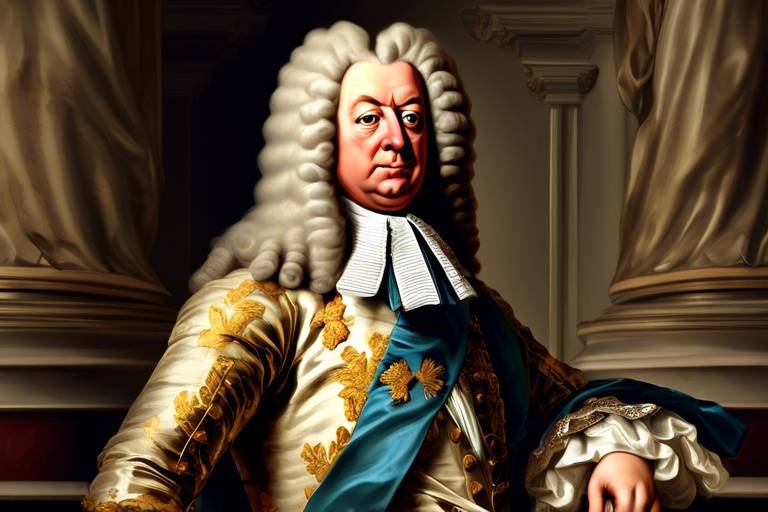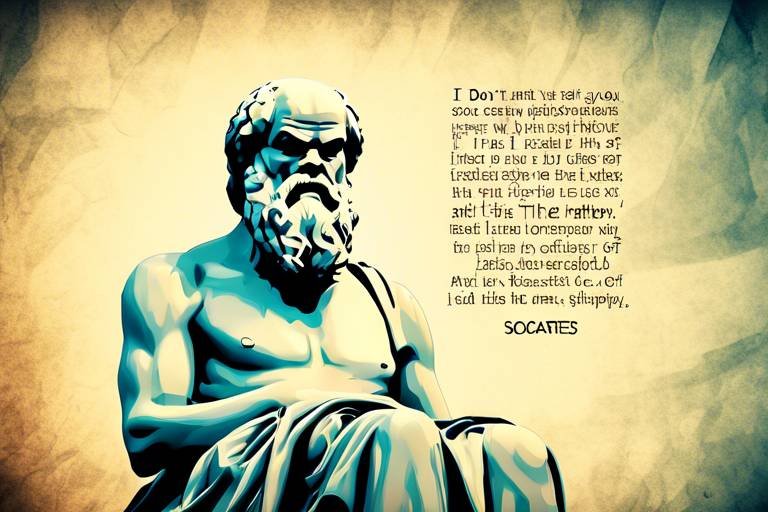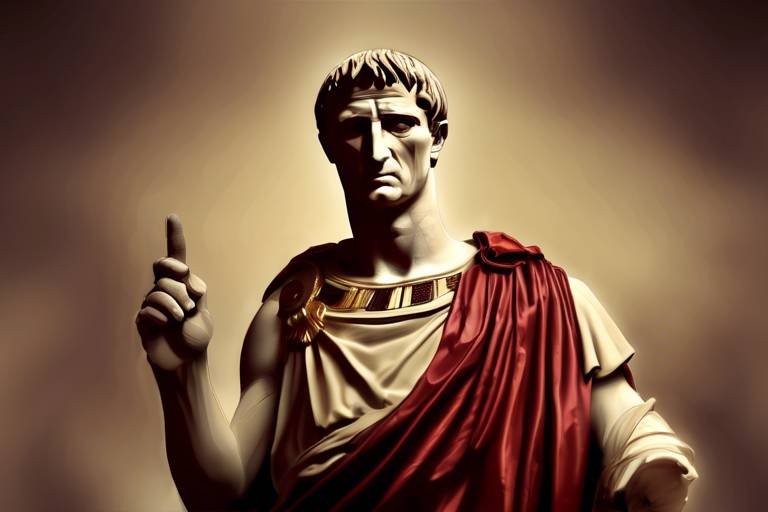Zheng He: The Explorer of the Ming Dynasty
Exploring the life and expeditions of Zheng He, the renowned Chinese explorer who led seven voyages during the Ming Dynasty, showcasing China's maritime power and diplomatic influence in the 15th century, is a fascinating journey through history. Zheng He's remarkable achievements and contributions have left a lasting impact on Chinese maritime history and global exploration.

Early Life and Background
Zheng He, the legendary Chinese explorer of the Ming Dynasty, had a fascinating early life and background that greatly influenced his future expeditions and accomplishments. Born in 1371 in the Yunnan province of China, Zheng He's original name was Ma He, and he belonged to the Hui ethnic group, which had strong ties to the Muslim community. His family was uprooted during the Mongol invasion, and Zheng He was captured and sent to serve as a eunuch in the imperial court of the Ming Dynasty.
Despite the challenges he faced early in life, Zheng He's time at the imperial court provided him with valuable opportunities for education and military training. His intelligence, leadership skills, and strategic thinking quickly caught the attention of the emperor, Zhu Di, who later appointed him as the admiral of the Treasure Fleet.
It is believed that Zheng He's Muslim heritage played a significant role in shaping his character and worldview. His upbringing instilled in him a sense of cultural diversity, tolerance, and a deep respect for different civilizations, which later influenced his approach to diplomacy and trade during his maritime expeditions.
As Zheng He embarked on his epic voyages, his early experiences as a eunuch and military commander molded him into a respected and influential figure in Chinese history. His background as a skilled navigator, diplomat, and strategist laid the foundation for the remarkable achievements he would accomplish in the years to come.

Seven Grand Voyages
During the Ming Dynasty, Zheng He embarked on a series of seven remarkable voyages that expanded China's influence across the seas. These grand expeditions, spanning from 1405 to 1433, were not merely maritime adventures but monumental diplomatic missions that showcased China's power and prestige to the world.
Zheng He's voyages were meticulously planned and executed, with the primary objectives of enhancing trade, establishing diplomatic relations, and projecting Chinese authority in the regions visited. The Treasure Fleet, under Zheng He's command, consisted of massive ships, some reportedly as long as 400 feet, carrying valuable goods, exotic treasures, and emissaries from the Ming court.
Setting sail from the port of Nanjing, Zheng He's fleet navigated through the South China Sea, reaching as far as Southeast Asia, India, the Arabian Peninsula, and the east coast of Africa. These expeditions were not only about exploration but also about demonstrating China's naval prowess and fostering cultural exchange with diverse civilizations along the way.
One of the most significant achievements of Zheng He's voyages was the establishment of diplomatic ties with various kingdoms and empires, including those in Southeast Asia, the Indian subcontinent, the Middle East, and East Africa. These interactions facilitated the exchange of goods, ideas, and technologies, enriching the cultural landscape of both China and the regions visited.
The voyages of Zheng He were not without challenges and risks, as the fleet encountered storms, navigational hazards, and potential conflicts during their journeys. However, Zheng He's leadership, strategic acumen, and diplomatic skills ensured the success of each expedition, solidifying China's reputation as a formidable maritime power in the 15th century.
Overall, Zheng He's seven grand voyages were a testament to China's maritime ambitions, diplomatic outreach, and cultural influence during the Ming Dynasty. His expeditions left a lasting legacy on global history, shaping the course of maritime exploration and intercultural exchange for centuries to come.

Commanding the Treasure Fleet
Commanding the Treasure Fleet, Zheng He held a pivotal leadership role in overseeing one of the most remarkable naval expeditions in history. The Treasure Fleet, a massive armada of ships, was a symbol of China's maritime power and Zheng He's commanding prowess. Consisting of hundreds of vessels, including massive treasure ships, the fleet carried not only goods and valuables but also a sense of diplomatic mission and cultural exchange.
Under Zheng He's command, the Treasure Fleet embarked on voyages that stretched across vast distances, reaching as far as the East African coast. The expeditions were not merely about exploration but also served as a demonstration of China's influence and power on the international stage. Zheng He's leadership style, characterized by strategic vision and diplomatic finesse, played a crucial role in ensuring the success of these ambitious voyages.
One of the key aspects of commanding the Treasure Fleet was the management of a diverse crew comprising sailors, soldiers, diplomats, and merchants. Zheng He's ability to navigate the complexities of such a multicultural environment reflected his skill as a leader and diplomat. The Treasure Fleet became a melting pot of different cultures, languages, and traditions, fostering a spirit of cooperation and mutual respect among its members.
Moreover, Zheng He's command of the Treasure Fleet facilitated the exchange of goods, ideas, and technologies between China and the regions visited during the voyages. The expeditions not only showcased China's wealth and power but also promoted cultural exchange and mutual understanding among civilizations. Zheng He's role in promoting peaceful interactions and trade relations contributed to the development of diplomatic ties that transcended borders and languages.
In essence, commanding the Treasure Fleet was not just about leading a naval expedition; it was about shaping history, fostering connections between distant lands, and leaving a lasting legacy of Chinese maritime exploration. Zheng He's leadership of the Treasure Fleet remains a testament to the spirit of adventure, diplomacy, and cultural exchange that defined the Ming Dynasty's era of exploration.

Cultural Exchange and Diplomacy
Exploring the life and expeditions of Zheng He, the renowned Chinese explorer who led seven voyages during the Ming Dynasty, showcasing China's maritime power and diplomatic influence in the 15th century.
During his voyages, Zheng He played a crucial role in fostering cultural exchange, trade relations, and diplomatic ties with the civilizations he encountered. His expeditions were not merely about exploration but also about building bridges between different cultures.
One of the key aspects of Zheng He's missions was the exchange of goods, ideas, and technologies between China and the regions he visited. Through these exchanges, Chinese silk, porcelain, and tea found their way to distant lands, while exotic goods such as spices, gems, and textiles made their way back to China.
Moreover, Zheng He's diplomatic skills were instrumental in establishing peaceful relations with foreign powers. He often acted as a mediator in resolving disputes and fostering alliances, showcasing China's soft power and diplomatic finesse on the global stage.
His voyages not only expanded China's influence but also contributed to a greater understanding and appreciation of diverse cultures. Zheng He's expeditions served as a platform for cultural dialogue, paving the way for future interactions and mutual respect between civilizations.
Through these cultural exchanges and diplomatic engagements, Zheng He left a lasting legacy of promoting harmony and cooperation among nations, transcending linguistic and cultural barriers to create a more interconnected world.
- What was the significance of Zheng He's voyages? Zheng He's voyages were significant for showcasing China's maritime prowess, fostering cultural exchange, and establishing diplomatic relations with various civilizations.
- How did Zheng He contribute to cultural exchange? Zheng He facilitated the exchange of goods, ideas, and technologies between China and other regions, promoting mutual understanding and appreciation of diverse cultures.
- What was the legacy of Zheng He's expeditions? Zheng He's expeditions left a lasting legacy of promoting harmony, cooperation, and cultural dialogue among nations, shaping the course of global history.
- How did Zheng He compare to Western explorers? Zheng He's expeditions differed from those of Western explorers like Columbus and Magellan in terms of scale, purpose, and approach to exploration, highlighting the unique aspects of Chinese maritime exploration in the 15th century.

Legacy and Historical Impact
Zheng He's expeditions left a profound legacy on Chinese maritime history and global exploration. His voyages, spanning from 1405 to 1433, marked a significant chapter in China's maritime prowess and diplomatic influence during the Ming Dynasty. Zheng He's exploration not only showcased China's advanced naval technology but also highlighted the country's commitment to cultural exchange and diplomatic relations with distant civilizations.
One of the key historical impacts of Zheng He's voyages was the establishment of trade networks and diplomatic ties with various regions, including Southeast Asia, India, the Middle East, and East Africa. Through these interactions, China expanded its influence, promoted cultural exchange, and facilitated the exchange of goods, technologies, and ideas.
Moreover, Zheng He's expeditions paved the way for future maritime explorations and trade routes, contributing to the development of the global economy and shaping the interconnected world we live in today. The Treasure Fleet's encounters with diverse cultures and societies fostered mutual understanding and laid the groundwork for future interactions between East and West.
In terms of legacy, Zheng He's voyages symbolize China's early forays into globalization and its commitment to peaceful coexistence and mutual respect among nations. His expeditions served as a bridge between different civilizations, promoting dialogue, cooperation, and the exchange of knowledge and traditions.
Furthermore, Zheng He's legacy continues to inspire contemporary discussions on maritime history, exploration, and cross-cultural interactions. Scholars and historians continue to study and debate the significance of his voyages, shedding light on the complexities of ancient maritime expeditions and their impact on world history.

Controversies and Debates
Controversies and debates surrounding Zheng He's expeditions have sparked intense discussions among historians and scholars. One of the main controversies revolves around the true purpose of Zheng He's voyages. While some argue that they were purely diplomatic and focused on showcasing China's power and prestige, others suggest that there might have been underlying economic motives driving the expeditions. The sheer scale of the Treasure Fleet has also raised questions about the resources allocated to these voyages and whether they were justified.
Another point of debate is the impact of Zheng He's expeditions on Chinese history. Some view him as a visionary explorer who expanded China's influence and promoted cultural exchange, while others criticize the expeditions for diverting resources away from other important domestic projects. The question of whether Zheng He's voyages had a lasting impact on global exploration and trade routes is still a topic of discussion among historians.
Furthermore, there are debates regarding the legacy of Zheng He and how his expeditions are portrayed in historical records. Some argue that Zheng He's achievements have been exaggerated over time to fit certain narratives, while others believe that his contributions to maritime exploration have been downplayed. The varying interpretations of Zheng He's role in Chinese history continue to fuel academic discussions and research.
In addition to these controversies, there are ongoing debates about the cultural impact of Zheng He's voyages on the civilizations he encountered. Scholars analyze the exchange of ideas, technologies, and goods that occurred during these expeditions, questioning the extent to which they influenced the development of global trade networks and cultural diffusion. The complex nature of these interactions adds another layer of intrigue to the legacy of Zheng He and his expeditions.

Rediscovery and Commemoration
Rediscovery and Commemoration of Zheng He's achievements have been a subject of fascination in modern times. Through the efforts of historians, archaeologists, and cultural enthusiasts, Zheng He's legacy has been rediscovered and celebrated across the globe. Museums dedicated to his expeditions showcase artifacts, maps, and replicas of the legendary Treasure Fleet, offering visitors a glimpse into the grandeur of his voyages.
Monuments honoring Zheng He stand tall in various cities, symbolizing his contributions to maritime exploration and cultural exchange. These statues and memorials serve as reminders of his diplomatic missions and the significant role he played in connecting civilizations through trade and dialogue.
Cultural celebrations dedicated to Zheng He bring communities together to commemorate his voyages and the impact they had on global history. Festivals, exhibitions, and reenactments of his expeditions help keep his spirit alive, fostering an appreciation for the diversity and interconnectedness of the world.
Furthermore, the digital age has allowed for the widespread dissemination of information about Zheng He, with online resources, documentaries, and educational materials shedding light on his achievements. By leveraging technology, Zheng He's story continues to inspire curiosity and admiration for his pioneering spirit and contributions to intercultural understanding.

Comparison to Western Explorers
When comparing Zheng He's expeditions to those of Western explorers like Columbus and Magellan, it becomes evident that each had their unique characteristics and contributions to the age of exploration. While Western explorers focused on finding new trade routes to Asia and expanding their empires, Zheng He's voyages were more about showcasing China's power and establishing diplomatic relations with other civilizations.
One significant difference lies in the scale of their expeditions. Zheng He's Treasure Fleet was massive, consisting of hundreds of ships and thousands of crew members, whereas Columbus and Magellan led smaller fleets with fewer resources. This difference in scale highlights the emphasis China placed on maritime exploration during the 15th century.
Moreover, the motivations behind their voyages differed. Western explorers were driven by the desire for wealth, power, and spreading Christianity, while Zheng He's missions aimed to promote cultural exchange, establish diplomatic ties, and showcase China's prestige on the global stage.
Another key distinction is the legacy left by these explorers. While Columbus and Magellan are often celebrated in Western history for their discoveries and conquests, Zheng He's achievements were somewhat overshadowed in Chinese history until recent rediscoveries. However, Zheng He's expeditions played a crucial role in facilitating cultural exchange and trade relations between China and other civilizations.
In essence, while Western explorers focused on conquest and colonization, Zheng He's voyages symbolized a different approach to exploration, emphasizing diplomacy, cultural exchange, and the projection of soft power. By comparing these explorers, we gain a deeper understanding of the diverse motivations and impacts of global exploration during the 15th century.
Frequently Asked Questions
- 1. Who was Zheng He?
Zheng He, also known as Cheng Ho, was a Chinese mariner, explorer, and diplomat who lived during the Ming Dynasty in the 15th century. He is renowned for leading seven grand voyages across the Indian Ocean, showcasing China's maritime power and diplomatic influence.
- 2. What were the purposes of Zheng He's voyages?
Zheng He's voyages had multiple purposes, including promoting trade, establishing diplomatic relations, showcasing China's power and wealth, and collecting tribute from foreign lands. They also aimed to enhance cultural exchange and spread Chinese influence.
- 3. How did Zheng He's expeditions compare to those of Western explorers?
Unlike Western explorers like Columbus and Magellan, Zheng He's expeditions were focused on diplomacy, trade, and showcasing China's power rather than seeking new trade routes or territories. Zheng He's voyages were massive in scale and emphasized peaceful interactions.
- 4. What was the Treasure Fleet commanded by Zheng He?
The Treasure Fleet was a massive naval fleet led by Zheng He, consisting of hundreds of ships, including massive treasure ships that were several times larger than European vessels of the time. The fleet carried valuable goods, troops, diplomats, and interpreters on its voyages.
- 5. What is Zheng He's legacy?
Zheng He's expeditions left a lasting legacy on Chinese maritime history, global exploration, and cultural exchange. His voyages facilitated trade, cultural diffusion, and diplomatic ties between China and various civilizations, influencing future maritime endeavors.



















